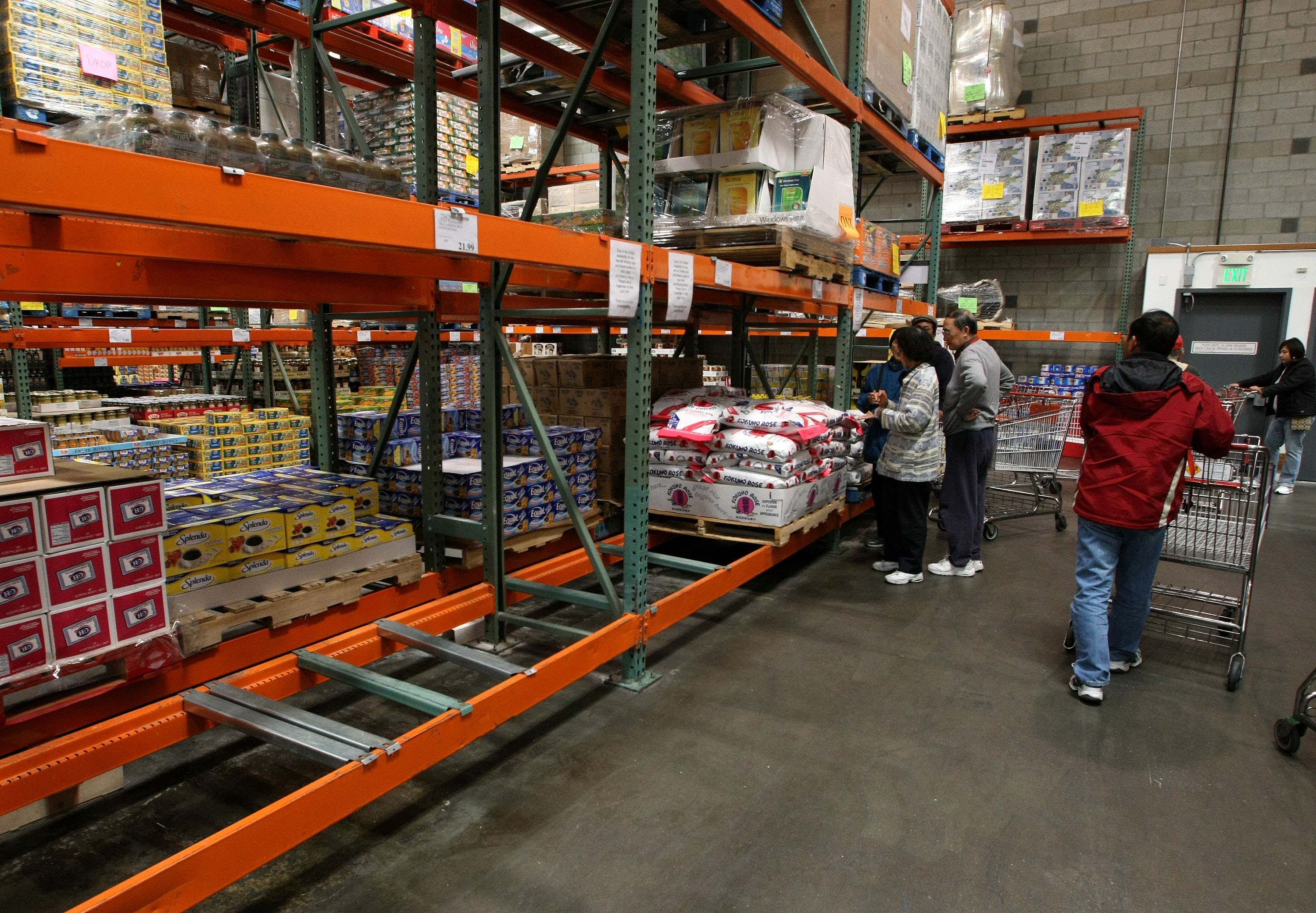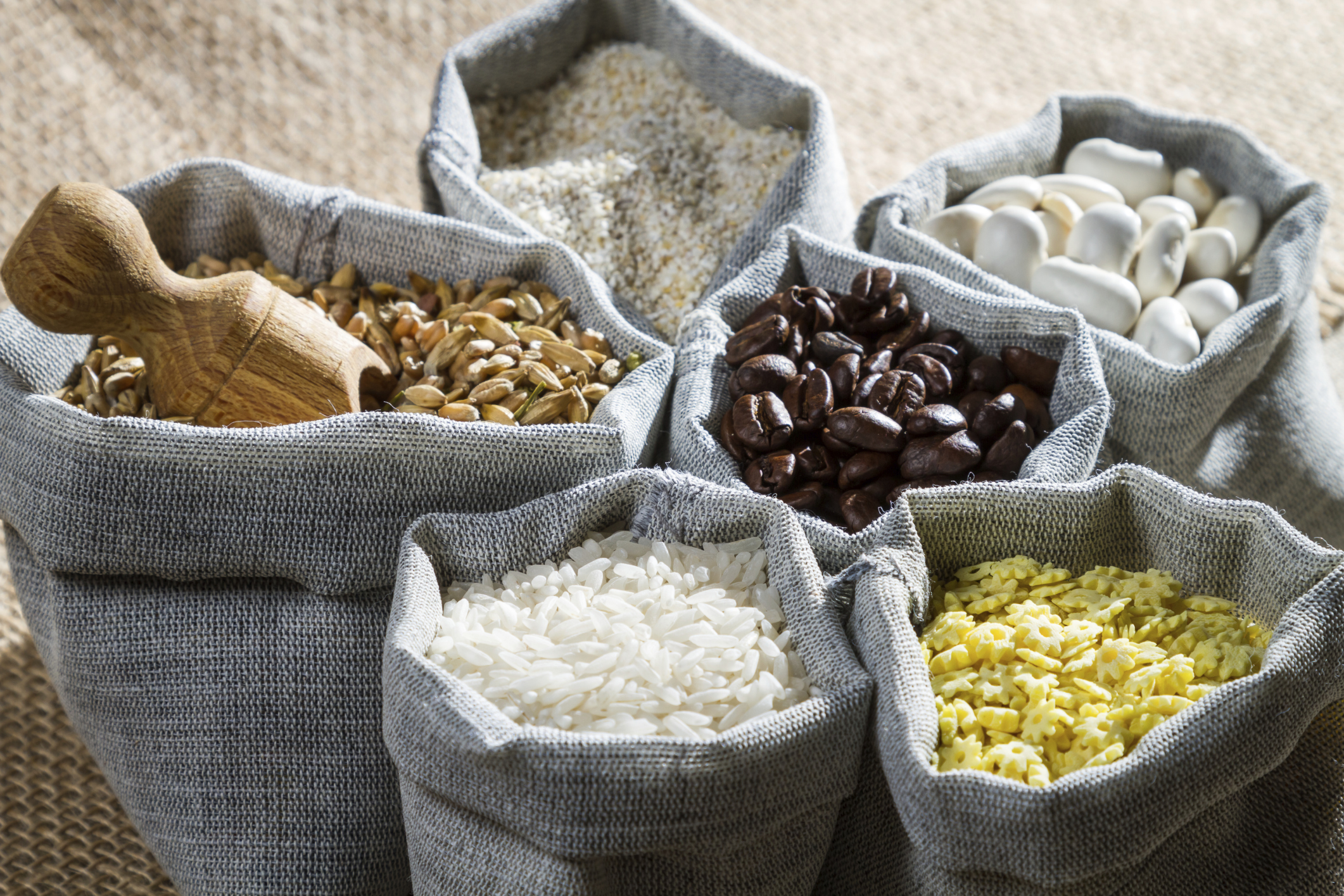When you use unit pricing to compare costs of different foods, you quickly learn that larger sizes are often a better buy. But there are a few things you should think about before you bring home that 30-pound bag of rice and case of canned tuna.
Is It Worth It?
- Storage space– If you don’t have the space to keep it, buying a huge amount of food and supplies is not a great idea. If you do have space, remember the LIFO Rule– Last In, First Out. Figure out a system to make sure you use older stuff first. Writing the purchase date on the package can help.
- Membership fees– Warehouse clubs (Costco, BJ’s, Sam’s Club, etc.) charge membership fees in order to shop there. These stores all accept EBT, so if you think the savings outweigh the membership fees, which start at round $50 a year (based on my quick web search this morning), you can stock up on your Better Pantry staples.

Warehouse clubs can be a good place to stock up on staples, if the savings outweigh the membership fees.
- Fresh products– Only buy what you can eat before it goes bad. Wasted food is never a good buy, no matter how great of a deal you got when you paid for it. In general, non-perishable foods, those that last a long time at room temperature or in the freezer are the best items to buy in bulk.
- Nutrition– Don’t get sucked in by the low prices. You still need to read labels and make smart choices when shopping in bulk. While buying a “sometimes” treat at the normal size probably fits in a healthy diet, buying that treat in bulk might cause you to eat it more than you should. So skip the jumbo bag of chips and get your crunch from unsalted nuts or whole-wheat pretzels.
- Necessity– Similar to the temptation of low prices to buy unhealthy foods, make sure that you are only buying what you truly need. A meal plan and a grocery list come in handy here. No matter how much you’ll be saving, if you don’t need it, it’s not a good buy. The point is the warehouse club is not the best place to try a new and unusual food. Unless you want the other 24 servings of the dried papaya your kids won’t eat haunting your pantry for the next year.
Do you ever shop at these bulk stores? What are some of your recommendations of good items to buy in bulk?

